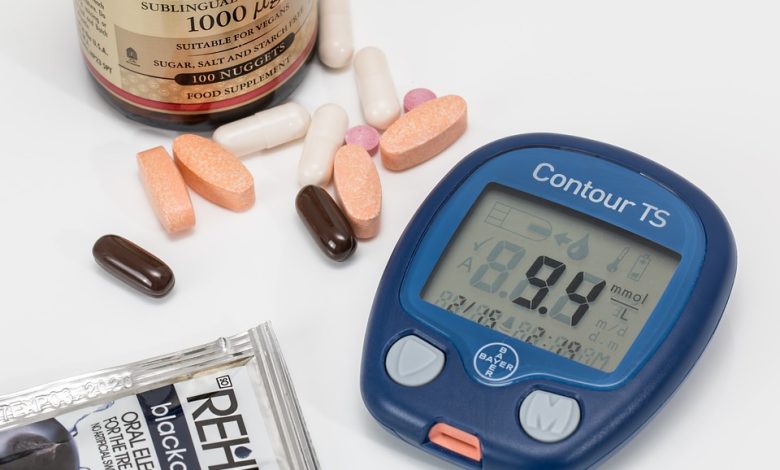Which Diabetes Drugs Cause Pancreatic Cancer?

Drug-induced pancreatic cancer refers to the development of pancreatic cancer as a result of exposure to certain medications or chemicals. Some studies have suggested a potential link between some diabetes medications and an increased risk of pancreatic cancer.
Diabetes medications can cause side effects for a variety of reasons. One of the primary reasons is that diabetes is a complex metabolic disorder, and drugs used to treat the condition often have to interact with multiple systems in the body to be effective. This can lead to unintended effects on other organs and systems, resulting in side effects.
Another reason why diabetes medications can cause side effects is that many of these drugs are designed to lower blood sugar levels, which can be a delicate balance and because they are potent drugs they can affect multiple systems in the body. For example, some of the newer diabetes drugs, such as GLP-1 agonists and SGLT-2 inhibitors, have been associated with side effects such as gastrointestinal problems, infections, and kidney problems. While these drugs can be very effective in controlling blood sugar levels, they can also have unintended effects on other parts of the body.
Which Diabetes Drugs Cause Pancreatic Cancer?
There is currently no definitive evidence to suggest that any specific diabetes drug causes pancreatic cancer. However, some studies have suggested a potential link between the use of certain diabetes medications and an increased risk of pancreatic cancer. It is important to note that these studies are largely based on observational data, and further research is needed to establish any causative relationship between diabetes drugs and pancreatic cancer.
One class of diabetes medications that have received particular attention with regard to pancreatic cancer risk is incretin mimetics, which includes drugs such as exenatide, liraglutide, and sitagliptin. Incretin mimetics work by mimicking the effects of incretin hormones, which stimulate insulin release in response to food intake. Some studies have suggested that long-term use of incretin mimetics may increase the risk of pancreatic cancer, although the evidence is not conclusive.
Another diabetes medication that has been linked to pancreatic cancer in some studies is metformin. Metformin is a commonly prescribed medication that works by reducing glucose production in the liver and improving insulin sensitivity. While some studies have suggested that metformin may lower the risk of pancreatic cancer, others have found no association or even a slight increase in risk.
It is important to note that other factors, such as age, smoking, and family history of pancreatic cancer, are known to be strong risk factors for pancreatic cancer. Therefore, it is difficult to establish a direct link between diabetes drugs and pancreatic cancer risk without accounting for these and other confounding factors. Additionally, the overall risk of pancreatic cancer in people with diabetes is relatively low, and the benefits of controlling blood sugar levels with medication generally outweigh any potential risks.
In summary, while some studies have suggested a potential link between certain diabetes medications and pancreatic cancer, the evidence is not definitive. Patients with diabetes should continue to work closely with their healthcare providers to manage their condition and reduce their overall risk of complications, including pancreatic cancer.
It is worth noting that not all diabetes medications cause severe side effects, and many people are able to take these drugs without experiencing any adverse effects. In addition, many diabetes medications have been extensively studied and are considered safe and effective when used as directed by a healthcare professional. However, it is important for patients to be aware of the potential side effects of these drugs and to report any unusual symptoms to their healthcare provider promptly.
How To Reduce Your Risk Of Drug-Induced Pancreatic Cancer
Reducing the risk of drug-induced pancreatic cancer involves minimizing exposure to potential carcinogens and taking steps to maintain overall health and well-being. Here are some specific steps you can take:
1. Quit smoking: If you smoke, quitting is the most important step you can take to reduce your risk of pancreatic cancer. Smoking is a major risk factor for pancreatic cancer, as well as other types of cancer and other health conditions.
2. Limit exposure to chemicals: Try to minimize your exposure to chemicals that are known or suspected carcinogens. This may involve avoiding certain cleaning products, industrial chemicals, and other substances that may be harmful.
3. Maintain a healthy lifestyle: Eating a healthy diet, maintaining a healthy weight, and getting regular exercise can help reduce the risk of pancreatic cancer, as well as other health conditions.
4. Follow your doctor’s recommendations: If you have a medical condition that requires medication, it is important to follow your doctor’s recommendations closely. This may involve taking medication as prescribed, attending regular checkups, and reporting any unusual symptoms to your doctor promptly.
5. Get screened if you are at high risk: If you have a family history of pancreatic cancer or other risk factors, talk to your doctor about whether you should undergo screening for pancreatic cancer. Screening may involve imaging tests or other procedures to detect early signs of cancer.
By taking these steps, you can help reduce your risk of drug-induced pancreatic cancer and other health conditions. It is important to work closely with your healthcare provider to develop a plan that is tailored to your individual needs and circumstances.





